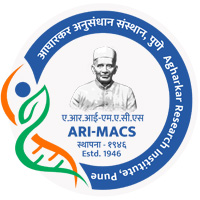Microbial identification and characterization
All identification and/or characterization services are carried out using scientifically validated protocols while following internationally accepted guidelines. New services continue to be launched from time-to-time. Our current services include:
Identification by rRNA Gene Sequencing (both partial and complete)
MCM offers service for identifying bacteria and archaea using rRNA gene sequencing and for anaerobic fungi using ITS sequencing or other universal primers. The whole process involves DNA isolation, PCR, post-PCR purification, cycle sequencing PCR followed by cleanup and automated sequencing. Quality checks at each step ensure high success rate. Sequence raw data is manually checked and only quality sequence data is used for curated database search to assign the identity.
Being a microbial repository, ascertaining the most accurate taxonomic identity is at priority. Hence, we use EzBioCloud results for bacteria and archaea, and UNITE or NCBI-BLASTn result for anaerobic fungi. The service usually takes 10-15 working days.
Phylogenetic Analysis
Raw sequence data in ab1 format is required from the user. Sequence quality checks are carried out followed by trimming, contig preparation, obtaining closely related sequences from database and multiple sequence alignment, which is also manually checked for accuracy. Phylogenetic analysis is performed with bootstrapping either by user-specified algorithm or Neighbor-Joining / Maximum parsimony method based on the requirement. The service usually takes 4-5 working days.
MALDI-TOF
MALDI-TOF MS (Matrix-assisted laser desorption ionization-time of flight mass spectrometry) is a rapid and cost-effective method of microbial identification, especially in clinical settings for high-throughout routine analyses. The user submitted fresh and pure microbial cultures is processed for protein extraction followed by a comparison of the protein profiles on the Bruker biotyper database. Result showing ≥1.7 log value with strain in database is confirmed as member of that genus and ≥2.0 log values is confirmed as the member of that species. The service usually takes 4-5 working days.
BIOLOG
BIOLOG is a unique automated system of identification based on substrate utilization patterns of microorganisms or communities. The service requires a pure culture of microorganism (for Gram‐negative and Gram‐positive microorganisms using GEN III plates and for anaerobes using AN plates) or a freshly collected environmental sample (for EcoPlates™). Upon incubation, the system generated “metabolic fingerprint” report can be used for microbial identification or for observing patterns (similarity comparison) between communities. Analysis of various environmental samples using EcoPlates™ on BIOLOG is also referred to ascommunity-level physiological profile (CLPP). Normally it takes about 10 working days to complete these tests. However, for slow growing organisms it may take longer.
Morphological Identification of Anaerobic Fungi
- Pure microbial culture (preferably streaked for single colonies) on Petri plates (or broth cultures in special cases), with completed form and proof of payment.
- Visibly pure cultures, discovered to be contaminated upon analysis will NOT be repeated.
- Also, the correctness of the type of organism (archaea orbacteria, aerobic or anaerobic, or anaerobic fungi) is users’ responsibility since this information will decide the type of analysis. Accordingly, MCM will NOT repeat any samples due to this user-error.
- Any discrepancy in results must be reported within 3 working days to MCM.
-
Reports containing results are usually sent online or by hard copy in rare cases.


